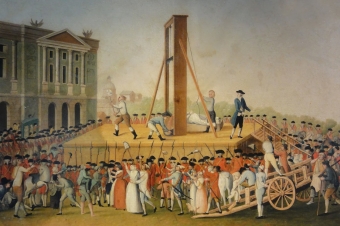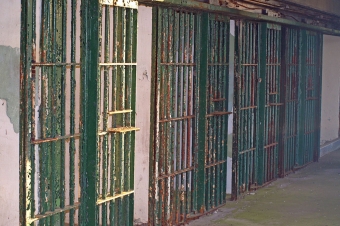Summary:
The activity’s didactic goal is to promote a first reflection about the modern penal law formation. The students should observe in one hand the contrast elements of Beccaria’s illuminist thinking, and on the other hand, Tiradentes’ sentence and the Philippine Ordinances which ruled in the country at that time.
Objective:
The activity’s didactic goal is to promote a first reflection about the modern penal law formation. The students should observe in one hand the contrast elements of Beccaria’s illuminist thinking, and on the other hand, Tiradentes’ sentence and the Philippine Ordinances which ruled in the country at that time. Using that, students could view, from a Brazilian history episode, the real dynamics of the pre-modern justice system that the Beccaria act stood against. In addition, they could develop oral abilities and critical reasoning, and also the activity invites the students to reflect on a judicial decision in function of a specific theoretical picture (In this case, the penal iluminism). Also, students create correlation judgments between the ideas and decision practices – abilities that could be utilized on the actual context, from theoretical standpoint and other decisions. Furthermore, the Tiradentes’ sentence observation allows students to ask themselves about a practical decision which is strongly present in our country still. It is based on the privilege of facts exposed and the imputation of condemnatory sentence, reserving few or none space to the punishment reflection to be applied. Additionally, it allows the discussion on death penalty in its multiple forms – like the Philippines Ordinations - and the Brazilian and other penalty systems changes since then.
Dynamics:
- TEACHING METHODS: problem-based learning.
- REQUIREMENTS: for the plenary class, the students read selected parts from Beccaria’s book, and as an additional reading, an Álvaro Pires’ penal rational formation summary. The class objective was to clarify parts, contextualize ideas and consolidate the Beccarian classic utilitarian theory of criminal punishment. For the next step, they should read the whole Tiradentes’ Sentence, issued on 1972 (attachment 1). It is possible to reserve the beginning of the class to read the document.
- DEVELOPMENT OF THE DYNAMICS: The beginning of the activity was destined to level the student knowledge about the subject. Generally, no one knows about the episode’s legal aspects, however, the political interpretation and social paper played by Tiradentes in the Brazilian society and his conviction generates really intense debates. After reading the document and the sentence historical contextualization, the students start asking questions about the legislation that was used at that time to understand the penal classification and the punishment extension. If the aspect does not arise spontaneously, it is worth presenting them some questions that lead them to reflect about the third component: besides the facts and the decision, it is necessary to know about the actual legislation. The loud reading, made by the professor, from the Philippine Ordinances is the right proposal (attachment 2). With all the elements, students were instigated to confront the exposed illuminist ideas in Beccaria’s text with the Tiradentes’ Sentence, and working in an oral group activity, they should identify the sentence’s characteristics that are opposite to the central components of the classic utilitarist theory studied before. At least four main points were identified in previous experiences: (1) cruelty deny, (2) the difference between decision and limits putted by law, (3) proportional question between penalty and crime, and last (4) the meaning of mercy given to the other Tiradentes’ people.
- END OF THE DYNAMICS: The main points, and the secondary ones taking the objectives of the dynamic were systematized on the black board by the professor.
- ATTENTION IN THE CLASS: It is strongly recommended the whole reading of Beccaria’s From Crimes and Punishment book, as important to this activity and for other moments during the course.
Evaluation:
- EVALUATION BY GRADES: The activity composed the course exercise’s grade. The course grade was composed by 35% of exercises, 30% group work, and 35% oral class participation. The last part was composed by (i) self-evaluation about the performance in the course (ii) professor indications using the class debates highlights. The highlights referred to the fundamental speech made from the class texts, and also to the connection establishment with the several readings and debates held on previous classes.
The written exercises evaluations could have “excellent”, “very good”, “good” and “do it again” parameters. On the last case, the student had the chance to make the exercise again until he achieved the objectives asked previously.
Observation:
Professor support material:
Obligated Beccaria’s book chapter readings:
BECCARIA, Cesare (1764). Dos delitos e das penas. São Paulo: Martins Fontes, 1999. (Introdução, I a VII; XII (finalidade das penas); XIX (presteza das penas); XXVII (moderação das penas); XL a XLVII) around 30 pages.
On the historical context from Tiradentes’ Sentence, see MAXWELl, Kenneth. A devassa da devassa: a inconfidência mineira: Brasil e Portugal 1750-1808. (São Paulo: Paz e Terra, 5a ed., 2001), mainly chapter 7 (“A crise”).
On the Philipine Ordinances, the introduction text from LARA, Silvia ao Livro V, edited by Companhia das Letras (São Paulo, 1999, p. 19-45).
On penal iluminism, see MACHADO, Maira. Beccaria e a racionalidade penal moderna na história dos saberes sobre o crime e a pena, from Álvaro Pires, em Instituições de Direito Penal de Basileu Garcia (São Paulo: Saraiva, 2008).






